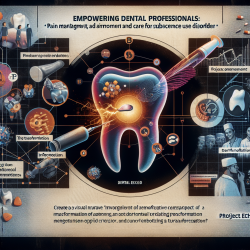Introduction
In the realm of healthcare, particularly in maternal and child health, a shift towards a person-centred approach (PCA) is gaining momentum. This approach emphasizes aligning care with patients' values, preferences, and desires, ultimately fostering a therapeutic alliance between healthcare providers and patients. A recent study conducted in Burkina Faso sheds light on the potential of PCA to transform healthcare delivery, especially in regions where cultural, social, and economic factors pose unique challenges.
The Essence of Person-Centred Care
At the heart of PCA are five fundamental principles:
- Biopsychosocial Perspective: Extending care beyond physical health to include psychological and social dimensions.
- Power and Responsibility Sharing: Encouraging a collaborative relationship between healthcare providers and patients.
- The Healthcare Professional as a Person: Recognizing the impact of caregivers' moods and emotions on care delivery.
- The Patient as a Person: Valuing patients as partners in their care, respecting their expertise and experiences.
- Therapeutic Alliance: Building a cooperative relationship that involves patients in decision-making about their care.
Challenges and Opportunities
The study highlights several challenges in implementing PCA in Burkina Faso. Cultural and linguistic differences, healthcare professionals' emotional states, and the traditional hierarchy in healthcare settings can impede the adoption of PCA. However, these challenges also present opportunities for growth and improvement.
For practitioners, embracing PCA means recognizing the importance of cultural sensitivity and effective communication. Training programs that focus on these aspects can empower healthcare professionals to better understand and meet the needs of their patients.
Implementing Change
To effectively integrate PCA into maternal and child healthcare, practitioners can take several steps:
- Enhance Communication Skills: Engage in training that emphasizes active listening, empathy, and cultural competence.
- Foster Collaborative Relationships: Encourage shared decision-making by involving patients in discussions about their care.
- Address Emotional Well-being: Provide support for healthcare professionals to manage stress and emotional challenges, ensuring they can deliver compassionate care.
- Promote Patient Empowerment: Educate patients about their rights and responsibilities, fostering a sense of partnership in their healthcare journey.
Conclusion
Adopting a person-centred approach in maternal and child healthcare is not without its challenges, but the potential benefits are profound. By prioritizing the values and preferences of patients, healthcare providers can foster trust, improve health outcomes, and create a more compassionate and effective healthcare system.
For practitioners, this journey requires a commitment to continuous learning and adaptation. By embracing PCA, healthcare professionals can play a pivotal role in transforming healthcare delivery in Burkina Faso and beyond.
To read the original research paper, please follow this link: Health professionals and patients’ perspectives on person-centred maternal and child healthcare in Burkina Faso.










